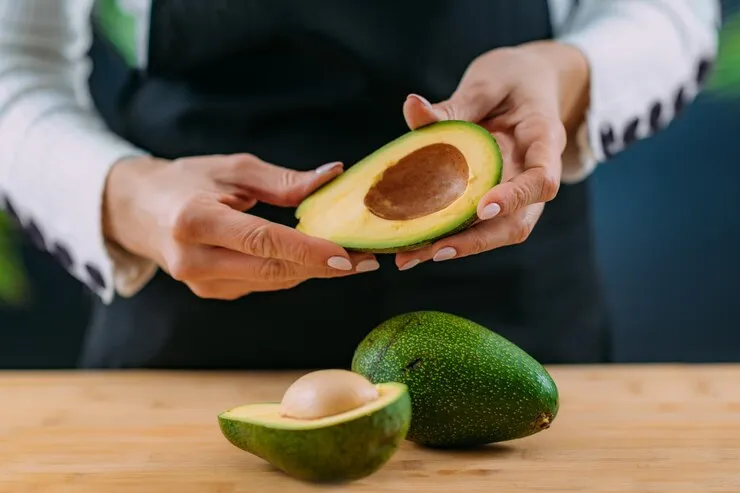7 Tips to Fight Stress With Healthy Eating
Whenever we get too stressed out, many of us tend to make poor food choices that actually increase stress and cause other problems. Follow these simple tips to get the most out of your food and avoid stress.

1. Always eat breakfast. Even though you may think you aren’t hungry, you need to eat something. Skipping breakfast makes it harder to maintain the proper blood and sugar levels during the day, so you should always
eat something.
2. Carry healthy snacks at all times. Keeping some protein rich snacks in your car, office, or pocket book will help you avoid blood sugar level dips, the accompanying mood swings, and the fatigue. Trail mix, granola bars, and energy bars all have the nutrients you need.
3. Try green tea instead. The caffeine in coffee and sodas can have stress-producing effects on your system. Try to gradually wean yourself off of caffeine drinks (going cold turkey can leave you with a headache, usually on the second day). Replace that coffee urge with a cup of green tea, which is soothing to the senses and contains lots of antioxidants.
4. Replace bad munchies with healthy ones. If you like to munch when you’re stressed out, you can replace chips or other non healthy foods with carrot sticks, celery sticks, or even sunflower seeds.
5. Drink your water. That means at least 8 cups a day. This helps filter stress-induced and stress-producing toxins from your system, and can also keep you energized. Being dehydrated can actually cause fatigue.
6. Bring your lunch to work or school. Although a lot of people prefer to eat fast food for lunch, you can save a lot of money and actually eat healthier if you take a few minutes and pack a lunch at home. Even if you only do this a few times a week, you’ll see a much better improvement over eating out.
7. Stock your home with the good stuff. As important as it is to get the bad food out of your house, it’s even more important to get the good food in! The best way to do this is to plan a menu of healthy meals, including healthy snacks, at the beginning of the week, list the ingredients you need, and then go shop for them. This way, you’ll know what you want when you need it and you won’t have to stress over what to eat.
Tips to Fight Stress With Healthy Eating
Stress is an unavoidable part of life, but what you eat can have a powerful impact on how your body and mind handle it. Instead of reaching for sugary snacks or junk food when stressed, nutrient-rich foods can help balance your mood, boost energy, and reduce anxiety. Here’s how to fight stress with smart, healthy eating habits.
1. Choose Mood-Boosting Foods
Certain foods help regulate stress hormones like cortisol and increase serotonin (the “feel-good” hormone). Add these to your diet:
Complex carbs (oats, quinoa, sweet potatoes) – Stabilize blood sugar and promote calmness.
Fatty fish (salmon, sardines) – Rich in omega-3s, which reduce inflammation linked to stress.
Leafy greens (spinach, kale) – High in magnesium, which helps relax muscles and nerves.
Nuts & seeds (almonds, walnuts, chia seeds) – Packed with healthy fats and stress-relieving nutrients.
Dark chocolate (70%+ cocoa) – Contains antioxidants and may lower cortisol levels.
2. Avoid Stress-Triggering Foods
Some foods can worsen anxiety and mood swings. Limit or avoid:
Refined sugar (candy, soda, pastries) – Causes energy crashes and irritability.
Caffeine (coffee, energy drinks) – Can increase heart rate and anxiety in excess.
Processed foods (chips, fast food) – Often high in unhealthy fats and additives that disrupt digestion and mood.
Alcohol – May temporarily relax you but disrupts sleep and worsens stress long-term.
3. Eat Regularly to Avoid Blood Sugar Crashes
Skipping meals can lead to low blood sugar, making you feel irritable and fatigued. Try:
Balanced meals (protein + healthy fats + fiber) to keep energy stable.
Small, frequent snacks (e.g., Greek yogurt with berries, hummus with veggies).
4. Stay Hydrated
Dehydration increases cortisol (the stress hormone). Aim for:
8-10 glasses of water daily (more if active).
Herbal teas (chamomile, peppermint, or lavender) for calming effects.
5. Practice Mindful Eating
Stress can lead to emotional eating. Try these mindful habits:
Eat slowly – Helps digestion and prevents overeating.
Avoid screens while eating – Focus on flavors and textures.
Listen to hunger cues – Eat when hungry, stop when full.
6. Prep Stress-Relief Snacks in Advance
When busy or stressed, it’s easy to grab junk food. Instead, keep ready-to-eat healthy options like:
Sliced apples with almond butter
Hard-boiled eggs
Trail mix (nuts + dark chocolate + dried fruit)
Avocado toast on whole grain bread
7. Try Adaptogenic Herbs & Supplements
Some natural remedies help the body adapt to stress:
Ashwagandha – Reduces cortisol levels.
L-theanine (found in green tea) – Promotes relaxation.
Probiotics – Gut health is linked to mood regulation.
8. Don’t Deprive Yourself—Balance is Key
Strict diets can add stress. Allow occasional treats without guilt! The 80/20 rule (80% nutritious foods, 20% flexibility) keeps eating enjoyable.
Final Thought: Food is Fuel for a Calmer Mind
What you eat directly affects how you handle stress. By choosing nourishing foods, staying hydrated, and eating mindfully, you can boost resilience, improve mood, and feel more in control—even during hectic times.






